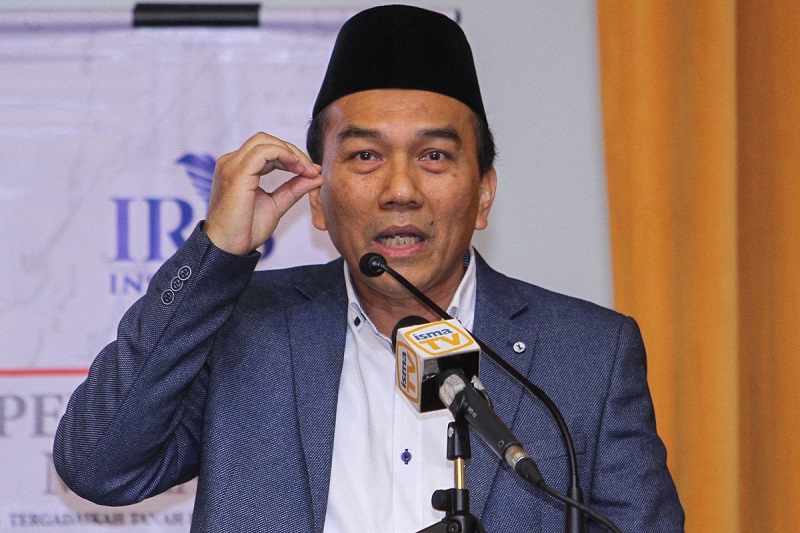BANGI, March 7 — With China’s expanding its influence into South-east Asia, there is renewed concern among some Malay-Muslim activists over the allegiance of Malaysia’s ethnic Chinese citizens.
These activists suggested that Chinese Malaysians still harbour sympathy and even loyalty towards the republic even though they have set down roots here.
According to Abdul Rahman Mat Dali, the deputy president of Islamist group Ikatan Muslimin Malaysia (Isma), it is only natural for Chinese Malaysians to feel a connection with China.
“Humans cannot run from a sense of belonging, of tribalism, the social connection. Which means, if they do not feel it, there is something wrong with them.
“For Chinese, surely there is the connection, it is natural,” he told a press conference after launching the book titled Pen’China’an Malaysia (The Sinicisation of Malaysia) here today.
In its book on “Sinicisation” — which refers to the process of non-Chinese societies getting influenced by China, especially its culture — publisher Interdisciplinary Research and International Strategy (IRIS) Institute claimed that China is using its diaspora as a tool to increase its influence in Malaysia.
The research outfit wrote in a chapter that the republic has targeted Chinese organisations and political parties to implement its strategy, by offering aid, training and incentive in aspects of economy, education, culture, media and politics.
Despite that, it admitted that the strategy is facing difficulties since the Sino community here, on average, views China negatively.
When asked about the chapter IRIS chief executive Syed Ahmad Israa’ Ibrahim conceded that there is a conflict within the Chinese community itself.
“The Chinese who are patriotic and loyal, they themselves feel jeopardised by China’s aggression, same with other South-east Asian countries with the Chinese diaspora.
“They feel that the national interest is disturbed by the arrival of China, so there is a conflict between the old China and the new China,” he said, referring to ethnic Chinese communities which have long been part of a country, and the influx of those from mainland China.

Can the Chinese outmuscle the Malays?
The concern was also brought up during a forum after the launch, with Datuk Sirajuddin Salleh, the deputy president of Malay rights group Perkasa expressing his worry that the Chinese may even overpower the majority Malays soon.
“The thinking of the Chinese is stereotyped. So I make the conclusion that the Chinese in China, and those here all think the same.
“We have seven million Chinese here, four million in Singapore, six to seven million in Thailand. Are they not united?” he said during a question-and-answer session.
The Department of Statistics estimated last year that Chinese Malaysians made up 23.2 per cent of the 32 million total population, or roughly 7.4 million, making it the biggest ethnic minority group in the country.
In comparison, ethnic Chinese made up 24.6 per cent of the population in the most recent national census in 2010.
Sirajuddin also alleged that three million of China’s nationals will enter Malaysia soon through some development projects, but admitted he had based it on a rumour.
In response, Ahmad Murad Abdul Halim, a lecturer on Chinese Studies with the Islamic Science University of Malaysia, claimed that the Chinese diaspora worldwide is seen as an extension of China’s society.
“All the Chinese in the world are brothers… Now, they’re bringing up the issue of nationalism among the diaspora, so the latter they will fall along with Beijing,” he said.
The sentiment was echoed by Abdul Muein Abadi, a political science lecturer at Universiti Kebangsaan Malaysia, pointing out the since-shelved proposal for an “overseas Chinese card” that will allow foreigners with Chinese ethnicity to enjoy benefits such as permanent residency.
The early Chinese who came here were mostly brought into Malaya from Southern China provinces such as Fujian and Guangdong by British colonists during 19th and 20th century to make up their workforce in the then booming tin mines and rubber plantations.
However, Chinese settlers have also been recorded as early as the 15th century during the spread of the Malacca Empire, which even then had formed friendly diplomatic relations.



















